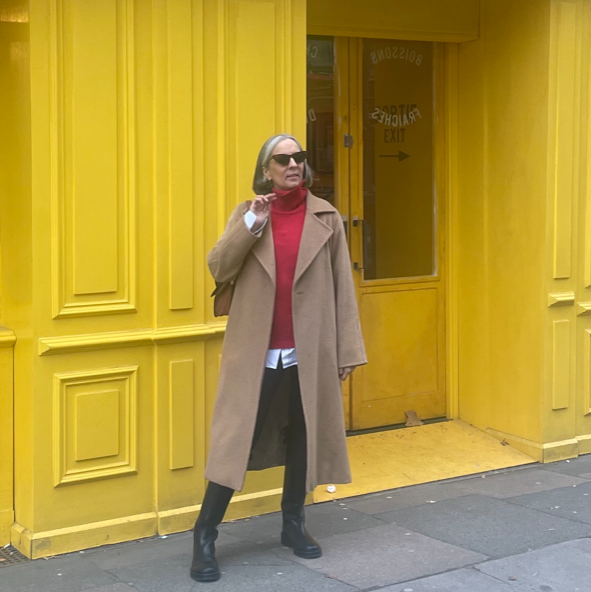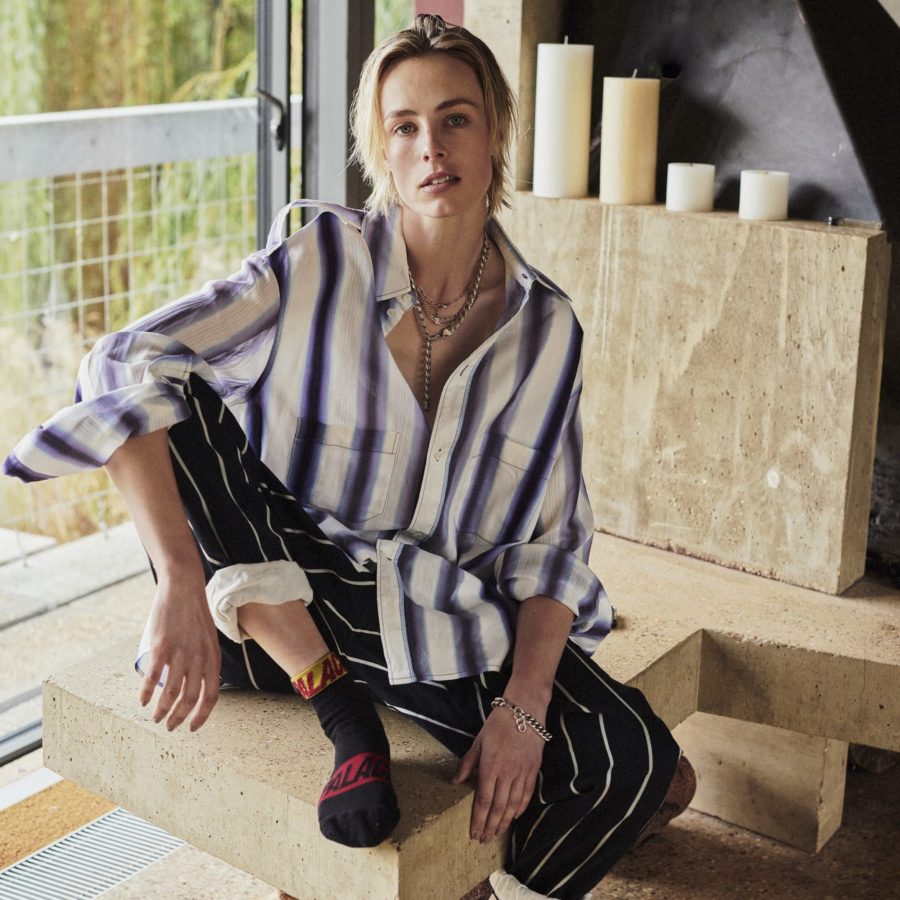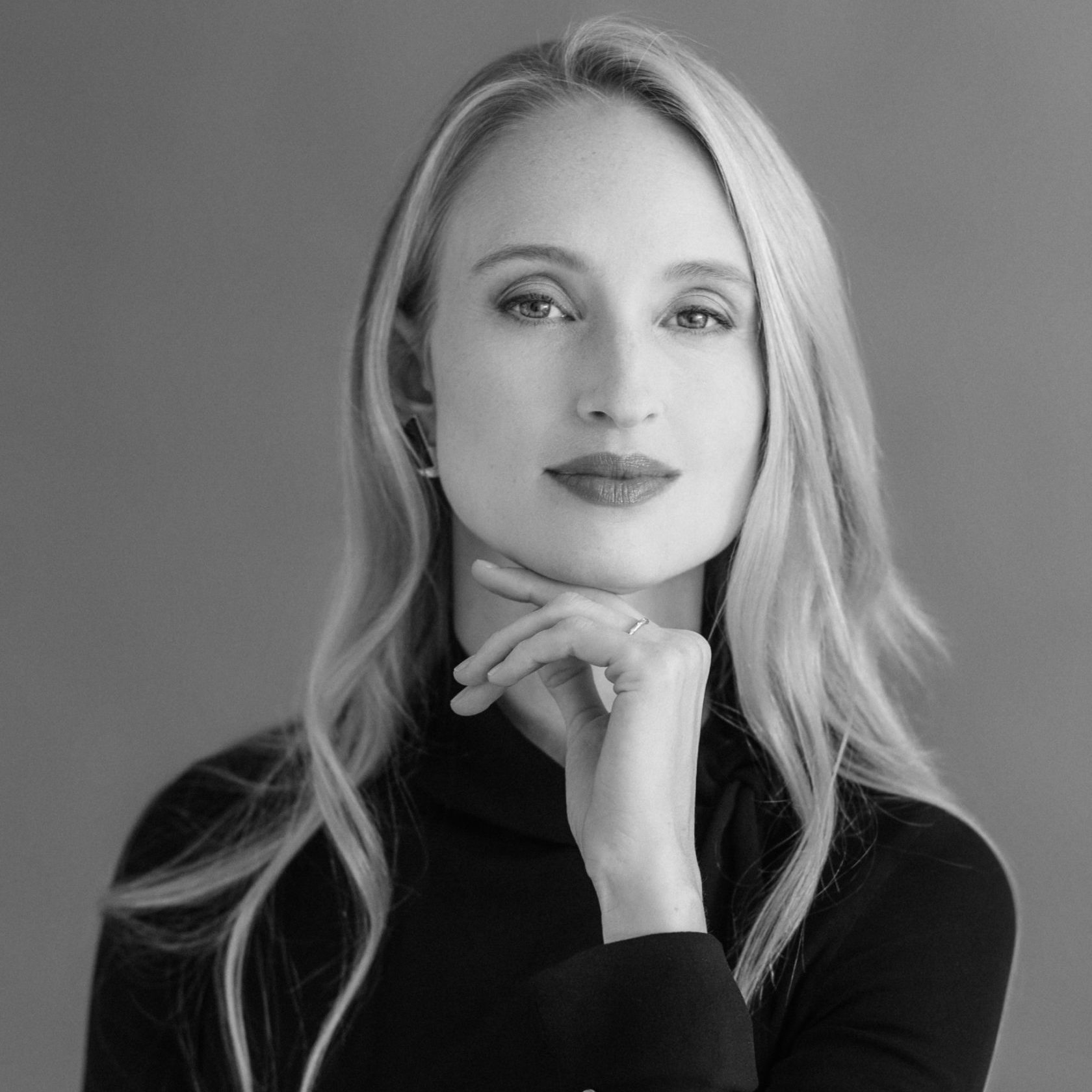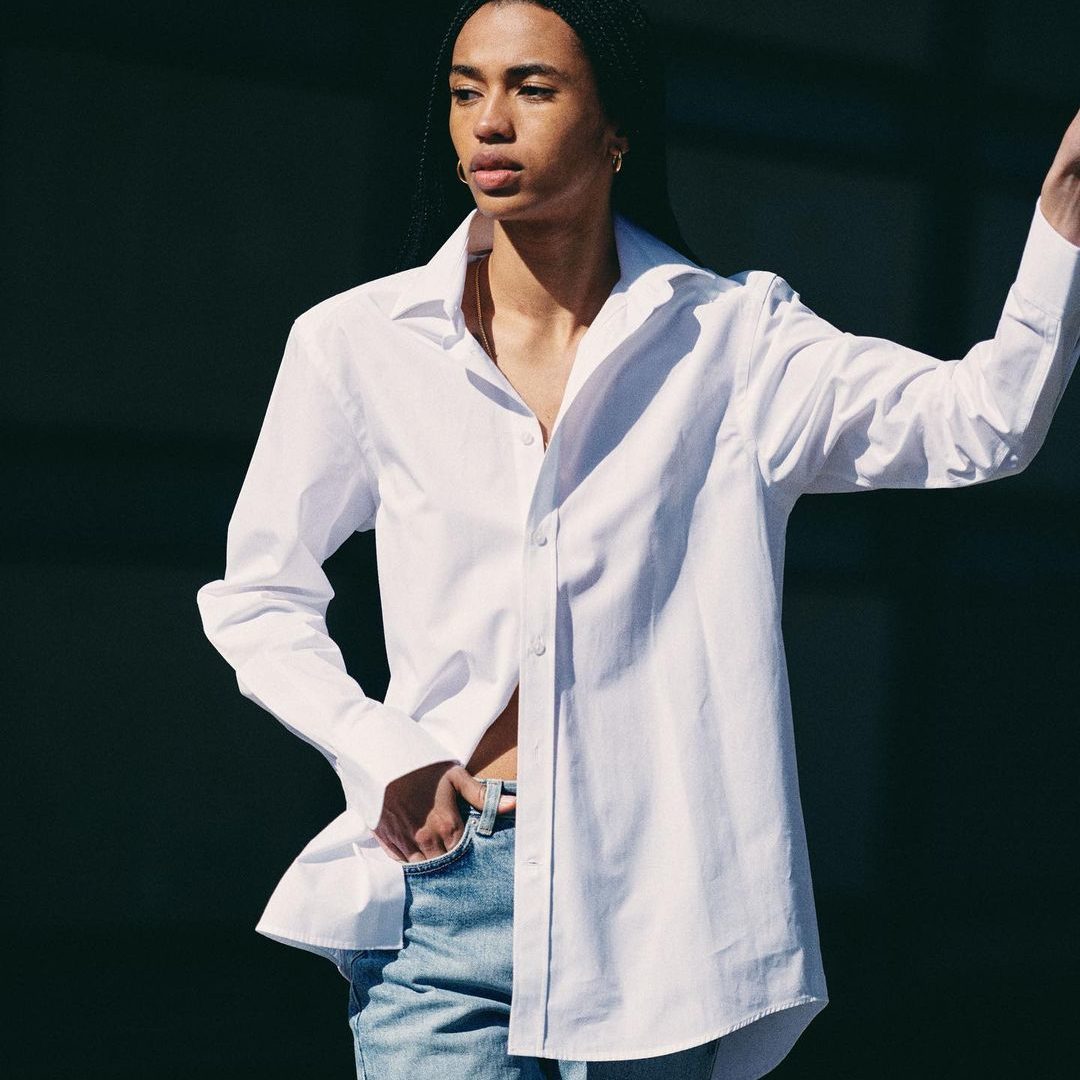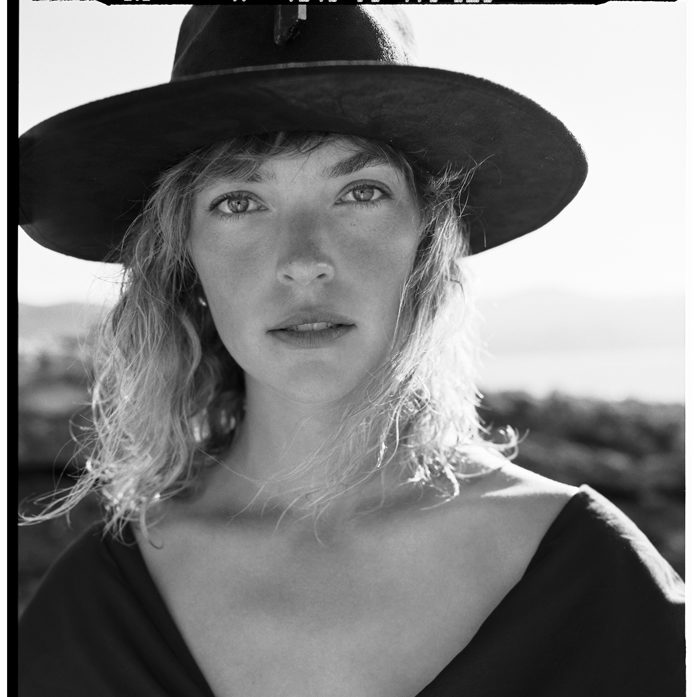January | Designer Focus
Marques’ Almeida
The London label with an audacious attitude has undergone a major revolution in the past two years. We talk to co-founder Marta Marques about how an unexpected move and a total refocus has reignited her creativity and passion
Emma Sells<a href="https://www.marquesalmeida.com" target="_blank" rel="noopener">Marques’ Almeida has London running through its DNA. It’s the city where the label made its debut a decade ago as part of the Fashion East line-up; where it won NEWGEN sponsorship in 2014 and both the British Fashion Award for Emerging Talent and the LVMH prize in 2015; where it built a cult following with its eclectic aesthetic and diverse casting and showcased the now-iconic shredded denim pieces that spawned seemingly infinite imitations; and it’s where founders Marta Marques and Paulo Almeida honed their craft and joined forces on an MA at Central Saint Martins. But, since March 2020, the label’s epicentre has been in Porto, Portugal.
It wasn’t what Marques and Almeida intended. The duo, who were born and raised in Portugal, made a long-planned trip to their hometown, their two young daughters in tow, just as the world was shutting down and they never left. In retrospect, it’s turned out to be the best thing that could have happened. Because, after ten years on the never-ending hamster wheel of the fashion calendar, with its relentless pressure to create the new, along with the day-to-day demands of raising a young family, the pair finally had the chance to take a breath, refocus the label and dive into the world of sustainability that they’d been interested in but put off engaging in for so long.
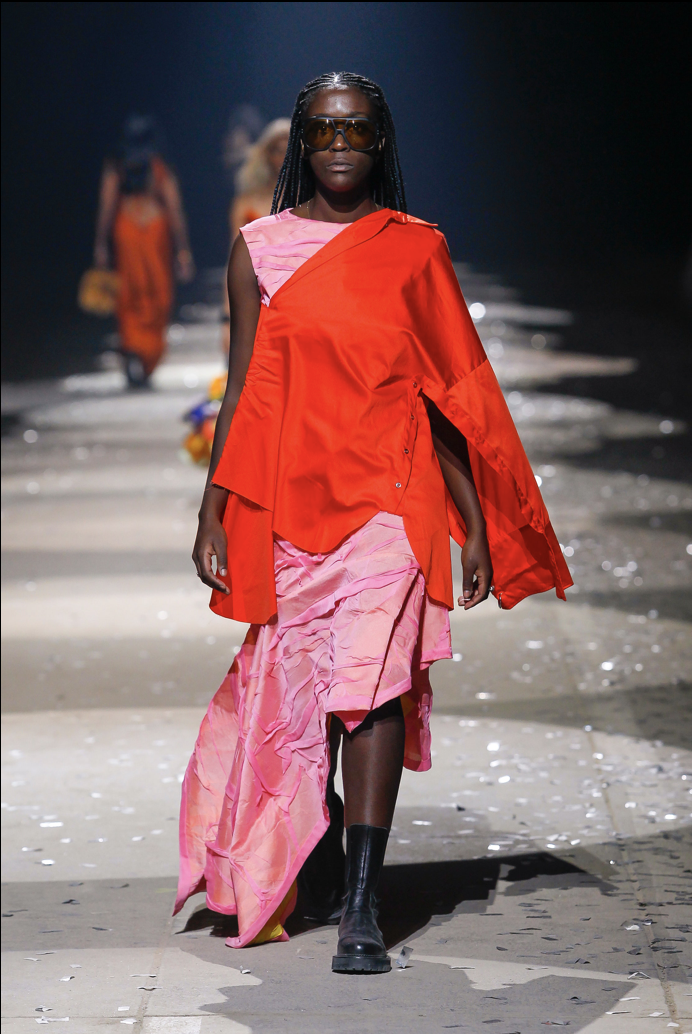
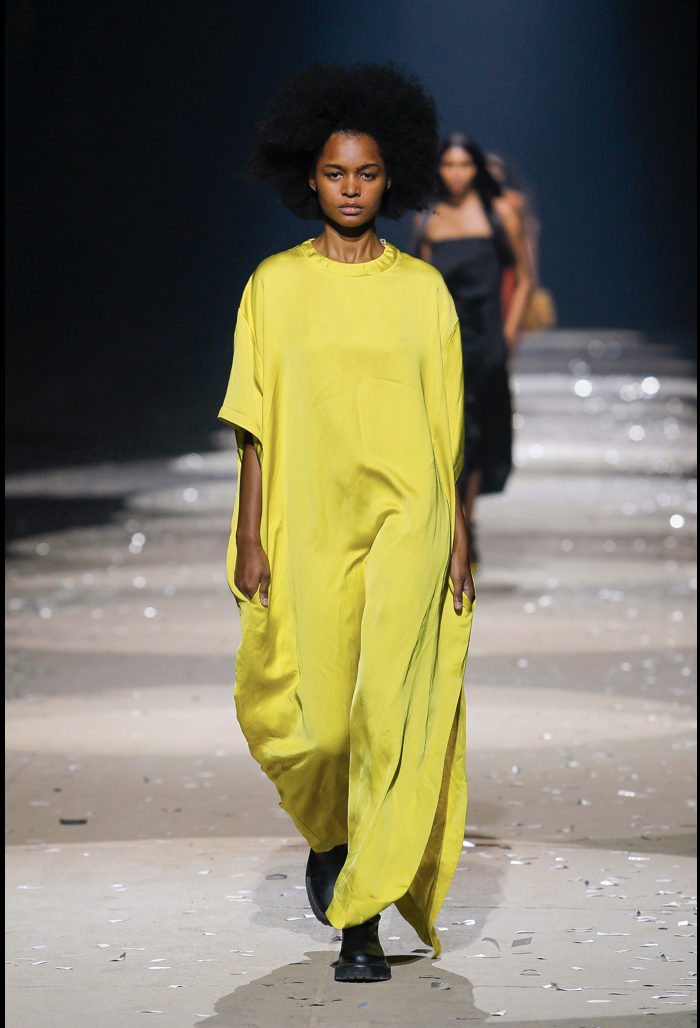
courtesy of Marques’ Almeida
It was never about an aesthetic for us; it was never about being chic or being grungy. It was always about this kind of effortless defiance that comes out in the oversized fits or the graphic prints or the way pieces are mixed together; the attitude of this girl, whether she's wearing a corset and a satin dress or some boyfriend jeans and an oversized coat.
Marques’ Almeida
The Marques’ Almeida signature has always been an audacious attitude; a cohort of cool girls and boys with a rebellious, nineties-inspired sensibility, dressed in everything from ruffled slip dresses and asymmetric mini skirts to frayed-edge trenches and XXL sweaters. “It was never about an aesthetic for us; it was never about being chic or being grungy,” explains Marques. “It was always about this kind of effortless defiance that comes out in the oversized fits or the graphic prints or the way pieces are mixed together. The nineties are the essence of how we started, but it’s really evolved into something hybrid because our Latin influence came in at some point and then we were obsessed with the opulence of Galliano, then Lacroix or whatever. We really don’t have any kind of limitations on what we get in the mix because what defines it is the attitude of this girl, whether she’s wearing a corset and a satin dress or some boyfriend jeans and an oversized coat.” An inclusive and supportive sense of community has been at the heart of the label, too, since the beginning, and in recent years the pair have wanted to hone in on their social and environmental responsibilities and shape them into something more concrete. But there weren’t enough hours in the day to take the first steps while also keeping the label on track. Which is why, when the pandemic turned everything on its head and threw the survival of the label into jeopardy, they decided it was now or never.
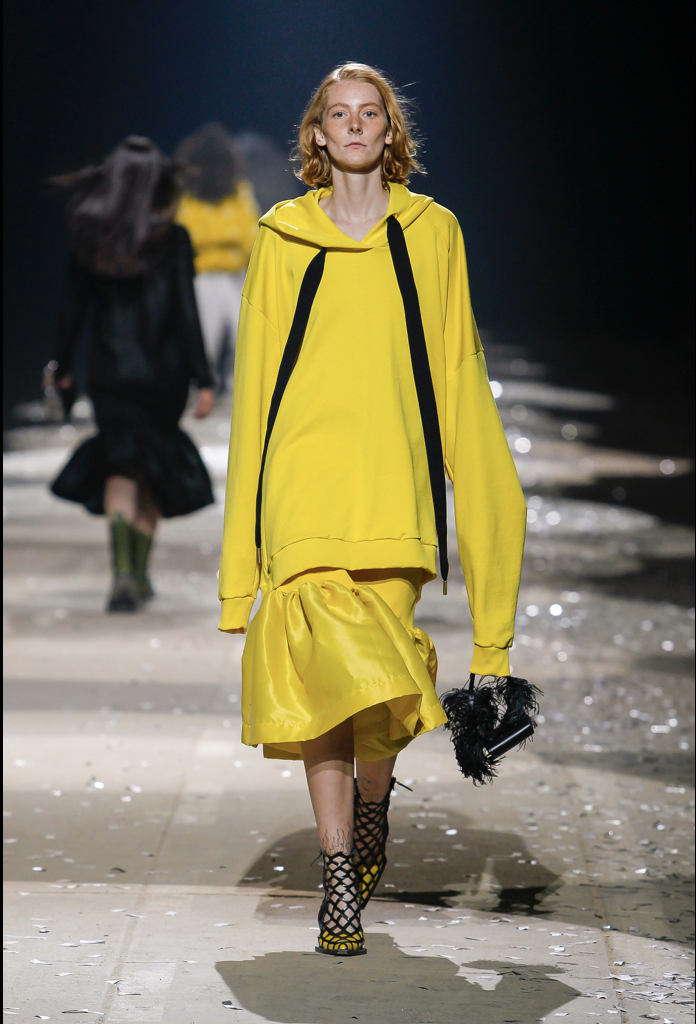
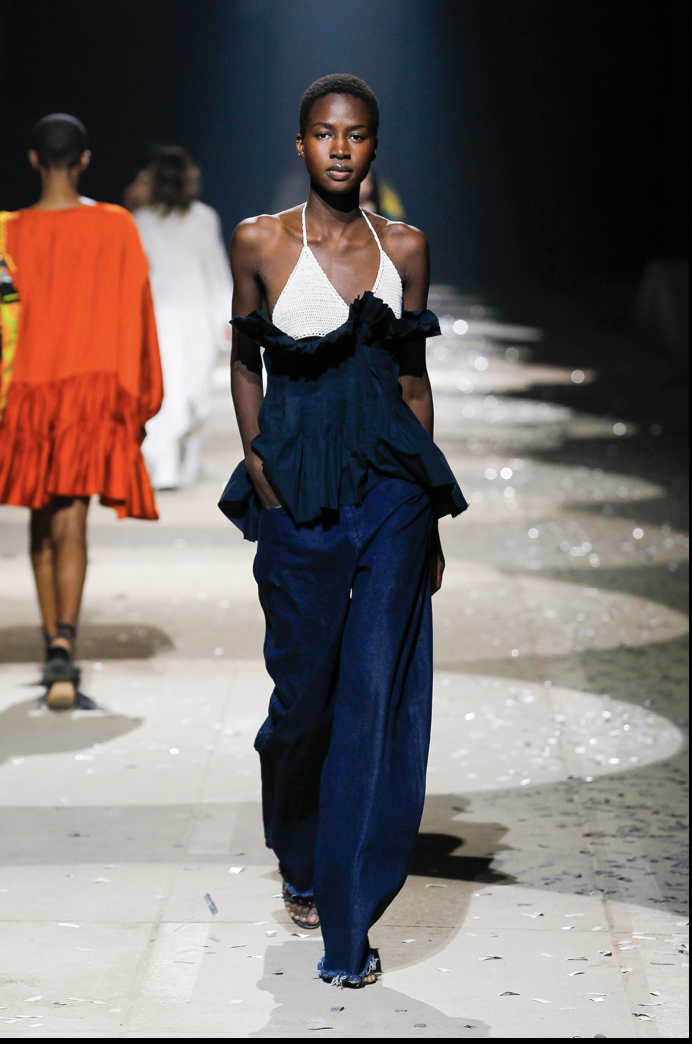
courtesy of Marques’ Almeida
“Sustainability is something that we started talking about in about 2018 but it was really a word you threw around every now and then, something interesting that you might look at at some point,” says Marques. “It always felt like a minefield; we didn’t know how to do it or have time for research because we had to make another collection and another, so we just kept postponing it. Then the pandemic made us feel that there was nothing to lose because everything just became so volatile and we didn’t know what was going to happen next. But that gave us space; we could pick up all the things that were in the back of our minds about sustainability and the purpose of the brand and give them our best shot.” So, in May 2020, instead of conjuring a seasonal collection, they called on their network of local factories to source deadstock fabric and launched reM’Ade, an experimental, standalone label that’s setting the blueprint for Marques’ Almeida’s future. In the interests of transparency, they produced a documentary about their process, too, and created a manifesto that included commitments to everything from eliminating waste and phasing out virgin materials across every one of their collections, to being a platform for positive change, setting the tone for the label’s evolution over the next five years.
An unexpected and much-welcome by-product of this new way of working is that it reignited a passion and creativity in Marques and Almeida that had somewhat ebbed away under the weight of industry pressures. They’ve been inspired by the swathe of artists, designers and creatives working in small studios and shared spaces around them in Porto. So much so, in fact, that they invited six to collaborate on their SS22 collection; incredible, floor-sweeping capes by Ariev, Nani Campos’ hand-knitted nets, patchworked bags conjured from scrap materials from Mana.Terra, TILO embroidery, chains by ceramicist Rebecca Letras, and Marcelo Almiscarado’s crocheted flowers were all integrated and overlaid onto the Marques’ Almeida looks. In the past year, the pair also found the bandwidth to start a magazine, See-Through, that champions the makers and communities in the industry that don’t get enough credit or visibility, and launch M’A Pre-Owned and a kids’ line to their existing offerings.
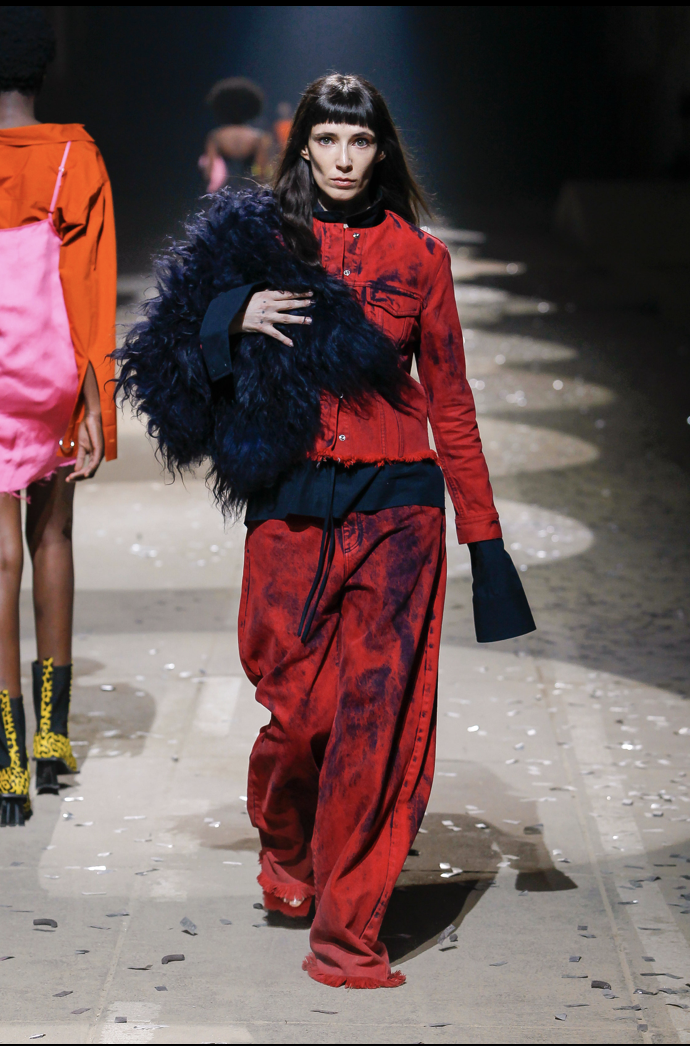
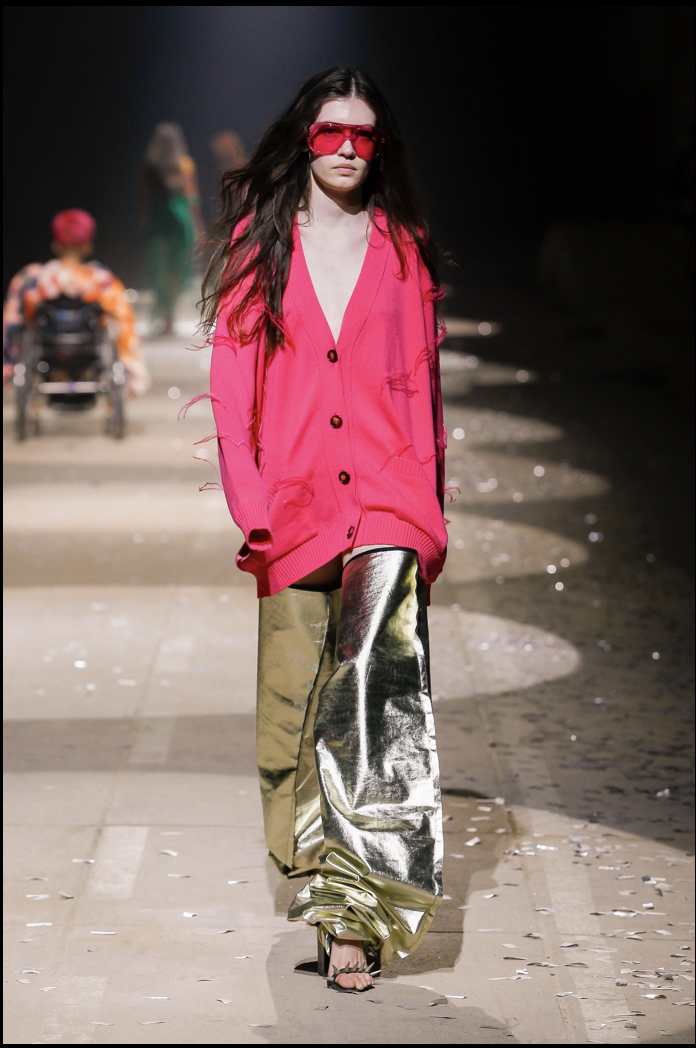
courtesy of Marques’ Almeida
They’re hoping to return to London in the coming months and quietly reconnect with the fashion scene. But, this time, it will be with a renewed sense of hope and optimism, a desire to do things their own way and to work with the creatives and communities whose mindsets align with theirs. “Our generation in fashion and other fields looked at the sustainable thing like it was a big effort because it wasn’t how we started our company, it wasn’t how we thought of things ten years ago, and we were fearful of doing the wrong thing,” says Marques. “The amazing thing that we’ve found is that when we meet people who started working in the last couple of years, representation and sustainability is so second nature to them, there’s no issue; they’re obviously going to create stuff and build businesses based on ideas of responsibility and supporting their communities. It’s just how you do things. And it’s so exciting. That’s what’s most important to us now, too: to do something that has a purpose, that’s meaningful, and to do it in a transparent way.”
